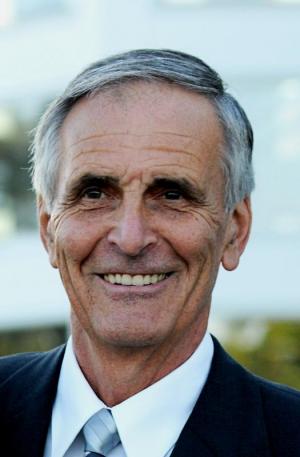NASA climate scientist and communications expert Peter Jacobs recently recommended that the term “global warming” should not be viewed monolithically, but instead as several aspects of “ocean heat being dialed up.” 1. The increase in ocean heat can alter both atmospheric and ocean circulation, which control global weather systems; 2. Air holding more moisture causes more storms and heavy rains, extreme events having significant environmental and economic ramifications; 3. Expansion of water volume from heating and melting of land-based glacial ice causes catastrophic inundation of low-lying population and commercial centers.
Analyses of these multiple effects make a strong case for anthropogenic climate change (that is, climate change due to human activity that is more than natural sources). Climate change is not just a threat of the future. It is occurring now and must be addressed to lessen the impact by adapting our behavior to compensate for the disruption and to forestall even more drastic impacts in the future.
The Intergovernmental Panel on Climate Change released its latest report in August 2021. Based on that report, UN Secretary General Antonio Guterres stated that this is “a code red for humanity.”
The IPCC reports are developed with input from a large number of science and social science experts throughout the world and are endorsed by most governments worldwide. This latest report will factor strongly in the next UN Climate Change conference in Glasgow, Scotland this coming November.
It is widely agreed upon that reduction of carbon dioxide emissions must be a critical and urgent goal. Most nations, states, cities, and major industries are making commitments for drastic reductions in CO2 emissions.
Since motor vehicles are a major source, most automobile manufacturers world-wide are committed to ending manufacture of internal combustion engines and switching to electric vehicles in the next few decades.
This will increase the demand for electrical generation and since electric generation is a major source of CO2, there is rapidly growing interest in alternate energy, especially wind and solar.
A move to alternate energy poses significant technical and environmental challenges, including obtaining sources of critical components for manufacture of solar and wind systems. Considerable effort is being expended to overcome the potential challenges.
Since we are at a point in 2021 where there is a chance for effective response to problems from climate change, efforts must be made for discussion and decisions to be made based on good science, not to be derailed by polarized political disagreements.
This is especially relevant to Delaware, the lowest lying state in the country and critical for the coastal communities of Lewes and Rehoboth Beach. Elected officials and the public view climate change as a major problem and feel that action should be taken to reduce its impact.
However, with the growing national polarization and climate denial, it will take a concerted effort for Delaware state and local legislators to pass effective legislation and for citizens to make behavioral changes to effectively reduce CO2 emissions.





















































